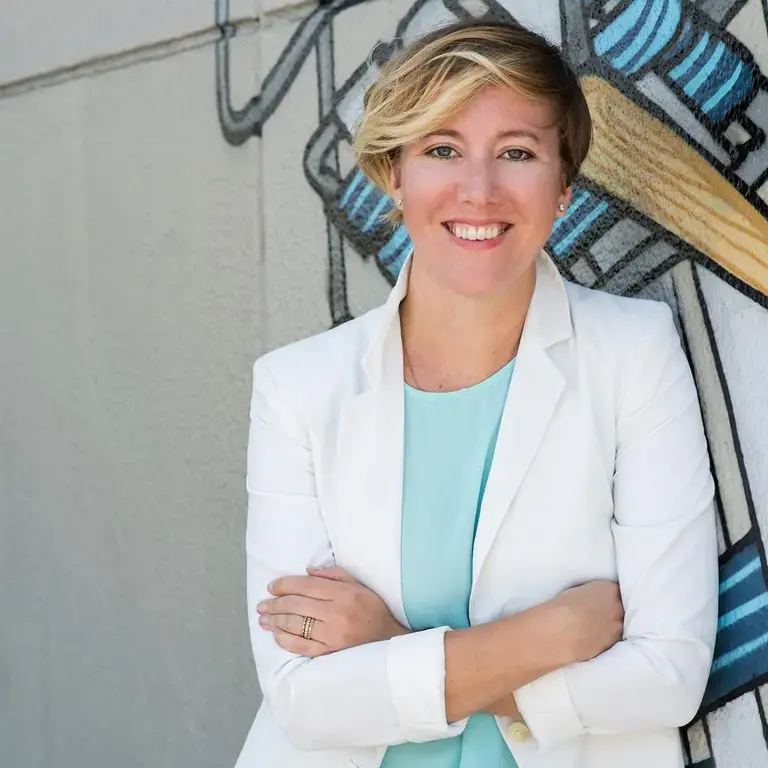The Master of Professional Studies (M.P.S.) in Wealth Management program at Columbia University School of Professional Studies (SPS) recently hosted a conversation with three leading experts in the fields of financial psychology and the psychology of financial planning.
The panel, “The Applied Psychology of Money: Wellbeing, Culture, and Adaptation in a Changing Industry,” was moderated by Meghaan R. Lurtz, a lecturer in Columbia’s Wealth Management program. It addressed topics such as cross-cultural planning, positive psychology in financial planning, and the adaptive role of the financial planner in the age of AI.
“I don’t know if there can ever be a panel again where AI, in some way, shape, or form, is not discussed,” said Dr. Jim Grubman, an internationally recognized family wealth consultant. “My hypothesis is that it’s actually going to have a pretty profound effect on the advising business.”
AI will also play an essential role in financial assistance, Dr. Grubman added. “Something that you might do in the planning realm with wills and estates could take a full day, not just click of a mouse. Now it’s a five-minute thing.”
But despite the future existence of very well-informed, high-EQ (emotional quotient) bots, clients are going to want to talk with real people for guidance. Grubman predicts that the next frontier for consultants will be having a smart assistant or participant in some of these ongoing family dialogues—a bionic source of wisdom.
Dr. Sonya Lutter, who teaches financial planning and financial psychology, shared Grubman’s assessment of AI while noting its current issues and limitations. “My issue with AI at the moment is that it’s very predictive. That’s what it was trained to do,” she said, adding that that’s the reason we still need personal contact and personal translation of what AI is producing.
It’s essential to recognize that this technology was released just two years ago, with significant venture capital being invested in its development. Dr. Brian Portnoy, an expert in the psychology of money and the founder of Shaping Wealth, expressed tremendous optimism about the positive impact AI can have on people’s lives. The influence of AI tools on clients is impressive, with tools like Otter’s transcription capabilities picking up on nuances that might have been overlooked, or at the very least reinforcing powerful insights.
Addressing compensation models, Grubman underscored the importance of humanity and empathy in consultancy, an essential aspect of the process. “That is the mindset shift: The new paradigm in the field is establishing rapport. When clients feel understood, when we delve into family dynamics and craft a plan that resonates, you may be compensated for the plan, but the bond and chemistry between you and the client are fundamental to your approach,” he emphasized. Clients require someone who seeks to understand their deepest needs.
This fundamental truth remains unchanged despite the impact of AI and has been a cornerstone of the industry for years. “If you can make them feel a certain way, they’ll spread the word to their friends and neighbors about you. And soon enough, you’ll have a host of new clients knocking at your door. That, in essence, is a compensation model,” added Dr. Portnoy.
And it’s not just understanding diversity or culture, but “part of the discovery process is getting a sense of what they are retaining and where they’re moving to, and any stresses that might be going on there as a result of that,” Grubman said.
How can we implement everything discussed in this panel? Simply put, the key lies in practice, as emphasized by Lurtz. While it’s crucial to grasp the theoretical aspects through classes and books, discovering your unique method of communicating with clients requires hands-on experience.
“You want to get good at asking questions, you want to be sure that you pause, you want to make sure that you’re being therapeutic and all that good stuff. You have to practice with a real person,” she concluded.
About the Program
A 16-month online program with asynchronous instruction, specially designed to accommodate working professionals, Columbia University’s Master of Professional Studies in Wealth Management program is taught by distinguished faculty with deep, applied experience in their respective fields. Additionally, it is a CFP Board Registered Program designed to help students meet the educational requirements for CFP® certification.




